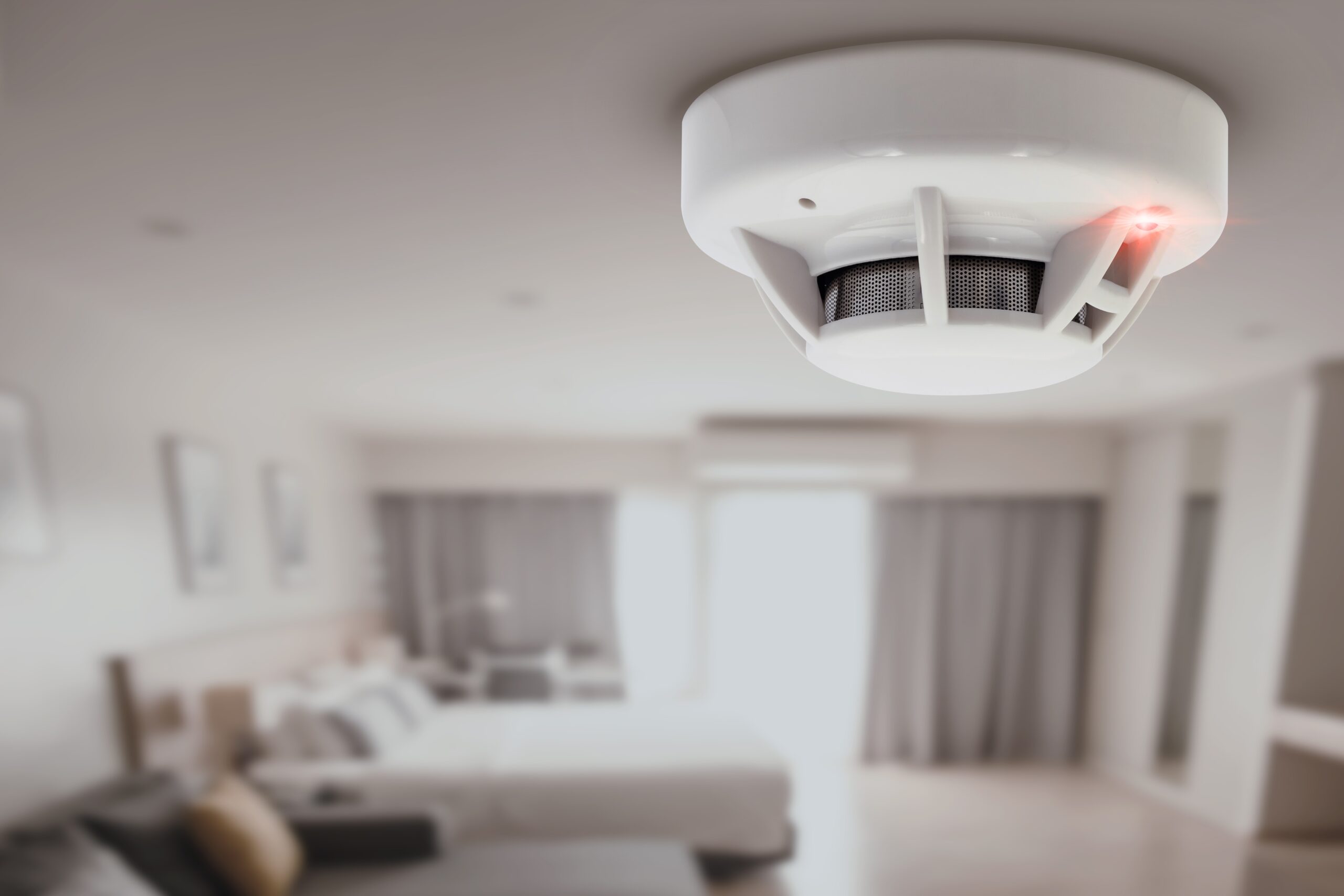Recently, the State of Minnesota passed a law regarding the installation of carbon monoxide (CO) alarms in hotels, motels, and lodging houses. This statute, which takes effect on August 1, 2024, requires owners of these properties to install a CO alarm in any room which can be lawfully used for sleeping. Continue reading to learn more about this state statute and how LVC Companies can help you make sure your hotel or motel is compliant.
The New State Law Regarding CO Alarms in Hotels & Motels
The new Minnesota state statute makes the owners of hotels, motels, and lodging houses responsible for installing carbon monoxide alarms in all guest bedrooms. This law is not limited to new construction; the statute is retroactive, meaning that the owners of existing motels and hotels are required to install CO alarms in rooms that were previously without them in order to stay compliant. Click here if you would like to read more about the state statute.
While smoke alarms have long been required in hotel rooms in Minnesota, property owners previously had the option of whether or not to install carbon monoxide alarms in guests’ sleeping rooms, which is why some motels and hotels may be without them. There are three primary options for carbon monoxide detection devices, each with their own benefits and drawbacks:
- Carbon monoxide alarms that are connected to and powered by a building’s fire alarm system. This is the ideal option for new construction, though it may prove expensive for hotel owners who already have a fire alarm system but don’t currently have CO detectors installed.
- Hardwired 120 volt CO detectors with a 9 volt battery back-up that are independent from the fire alarm system. This option is cheaper than CO alarms that are combined with smoke alarms, and may be a better fit for long-standing hotels that already have a fire alarm system without integrated CO detectors.
- Stand-alone carbon monoxide detectors that are completely powered by batteries. This option is only available for existing hotel, motels, and lodging houses; new buildings are required to install CO alarms that aren’t fully reliant on batteries to remain in compliance with state fire code.
While some may consider installing battery-powered carbon monoxide detectors a great cost-saving option, there are two major drawbacks to these cheaper alarms. The first drawback is that hotel owners are legally responsible for replacing CO detectors if they go missing or become inoperable. If CO detectors are damaged or stolen and the responsible party fails to notice soon enough, it could result in litigation against them. The second drawback is that battery-powered CO detectors will begin making an obnoxious chirping noise when they lose power, which is likely to irritate guests. These guests may remove the batteries to put an end to the noise, and they may also go on to leave negative reviews of the hotel or motel.
LVC Can Assist With Carbon Monoxide Alarm Installation
If your hotel needs to install new carbon monoxide alarms to remain in compliance with the state statute, LVC Companies would be honored to assist you with that process. Our technicians can install CO alarms that are either connected to your fire alarm system or separate from it, and provide ongoing testing to make sure they’re functioning properly. Connect with us today if you’d like to learn more about our carbon monoxide alarm installation services.


